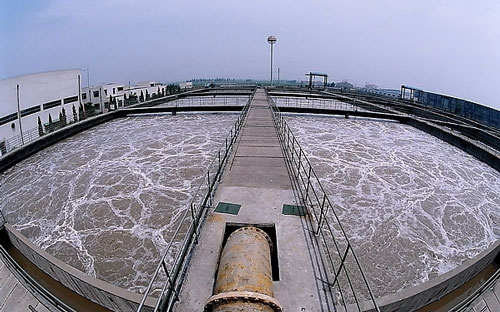pH Meter for Wastewater Treatment
Modern sewage treatment process can be divided into primary treatment, secondary treatment and tertiary treatment according to treatment level.
Primary treatment
In primary treatment, the suspended solid pollutants in the sewage will be removed, and most physical treatments can only meet the requirements of primary treatment. After the primary treatment, 30% BOD can be removed from the wastewater. It doesn’t meet the emission standard. Primary treatment is a pre treatment of secondary treatment.
Secondary treatment
In secondary treatment, colloid and dissolved organic pollutants (BOD, COD) in the waste water will be removed, and the removal rate can be higher than 90%. The organic pollutants meet emission standards. Use pH meter to monitor whether the emissions of organic pollutants are up to standard.
Tertiary treatment
In tertiary treatment, non biodegradable organic pollutants, N, P and other soluble inorganic substances that lead to eutrophication of water bodies are further processed. Main methods are biological nitrogen and phosphorus removal method, coagulant sedimentation method, sand filtration method and activated carbon adsorption method.
In this process, the sewage passes coarse screens firstly and then it lifted by a sewage pump, the lifted wastewater passes the screens or sand filter and enters in the sand basin subsequently. After filtration, the wastewater flows into a primary sedimentation tank, all above processes are primary treatments (namely physical treatment). Wastewater from the primary sedimentation tank enters the biological treatment equipment, corresponding treatment methods are activated sludge process method and MBR method (Equipment involved in the ASP method include the aeration tank and oxidation ditch, equipment involved in the MBR include biofilter, rotating biological contactor, biological contact oxidation process and biological fluidized bed). Effluent from biological treatment equipment enters the secondary sedimentation tank and effluent from the secondary sedimentation tank will be discharged after disinfection or enter into the tertiary treatment. Above treatments after the primary treatment belong to the secondary treatment. The tertiary treatment includes biological nitrogen and phosphorus removal method, coagulant sedimentation method, sand filtration method and activated carbon adsorption method. Partial sludge in the secondary sedimentation tank flows back to the primary sedimentation tank or biological treatment equipment, the remaining sludge enters the sludge thickener. After dehydration and drying, this part of sludge will be reused.
Buy pH meter and pH electrode on ATO.com, there are digital pH meter, pH controller, combination pH electrode for wastewater treatment.

